November 21, 2019
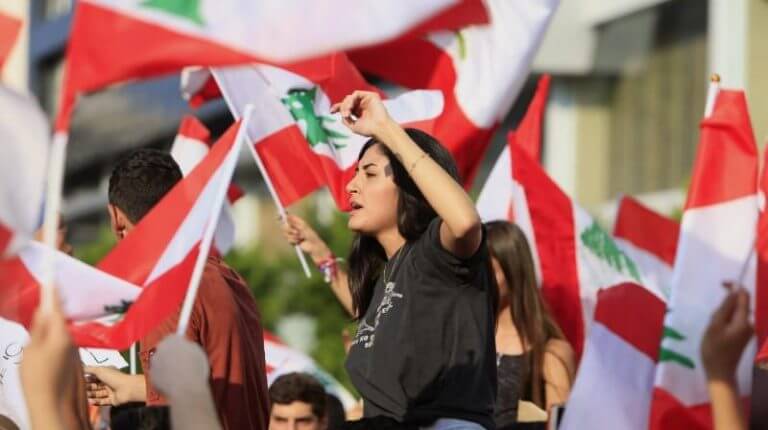
Weekly Report 21 November, 2019

Within the last week, three separate cases against Myanmar were been filed on counts of human rights abuses and genocide. The Gambia filed a genocide case with the International Court of Justice (IJC) against Myanmar on November 11th, urging the United Nations court to immediately issue orders to to stop atrocities and genocide against the Rohingya people. On November 14th, the International Criminal Court (ICC) launched its own investigation into Rohingya prosecution, while a separate lawsuit was filed in an Argentine court against Aung San Suu Kyi, Myanmar’s de facto leader. Though the three cases complement each other, they are distinct in the crimes they charge Myanmar with, the identity of the accused and the remedies the courts can order, which creates significant and differing advantages. The UN has stated that The Hague will hold public hearings in the case next month.
Aung San Suu Kyi, former Burmese leader and icon of democracy, will lead a delegation to the Hague next month and defend Myanmar against allegations of genocide. Prior to her election as State Counsellor in 2015, Aung San Suu Kyi spent decades under house arrest in Myanmar for campaigning for democracy. Though she received the Nobel Peace Prize in 1991 for her efforts in spreading democracy, she has repeatedly refused to condemn the actions of the military against the Rohingya, claiming there is not enough evidence to definitively say whether or not a genocide occurred in Rakhine, and blaming “terrorists” for the situation.

The first political prisoners in Cambodia were freed this week following Prime Minister Hun Sen’s promise to release over 70 individuals. The prisoners were jailed in response to their alleged support of the Cambodian opposition party formerly led by Sam Rainsy. The release of political prisoners is a step forward for Hun Sen’s administration, which has been heavily criticized for human rights infringements and the consolidation of power.
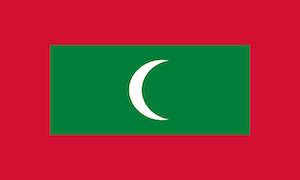
A 69 year old woman from Britain died in the Maldives this week while swimming. The unnamed tourist is the sixth person to have died in the Maldives this year as a result of strengthening currents around the island.
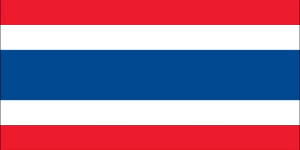
Former leader of the Future Forward Party (FFP), Thanathorn Juangroongruangkit, has been stripped of his role as an MP following allegations that he had not sold shares in his company before taking office. Thanathorn has claimed that the charges were politically motivated and maintains that he sold shares before his time as an MP; Thanathorn and the Future Forward Party have criticized the monarchy and the military, leading many of the Thai political elite to see him as an enemy. Though the charges come as a blow to the FFP, Thanathorn was not jailed or banned from politics, as many thought he would be.
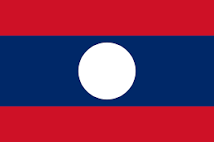
A strong earthquake hit the border between Laos and Thailand, registering as a 6.1 on the richter scale. Despite the level of the earthquake, no casualties or major damages have been reported in Laos; though there were no serious repercussions, the earthquake comes as a reminder of the need for earthquake-resistant structures as Laos builds up its infrastructure.

Families of the 39 victims found in a refrigerated lorry in Essex last month will be responsible for covering the costs of repatriation for the victims. On Tuesday, Vietnamese officials in the Ha Tinh province, where 10 of the victims lived, received instructions from Vietnam’s foreign ministry to inform families that neither the British government nor the Vietnamese government would aid families in the costs of returning the bodies of the victims. The Vietnamese government has offered to pay only the costs of bringing the bodies “home from the airport”. Though both agreed to front the costs initially, the loans of 66,240,000 Vietnam dong (£2,209) will need to be paid for the bodies. Interviews with several of the families revealed that the families were already experiencing crippling debt, with one stating that “the cost [of the loan] is out of our family’s capacity to pay now”. Pham Van Thin, the father of Pham Thi Tra My, stated that he “had to take loans from the bank to pay for her travel, and we still owe the banks”.
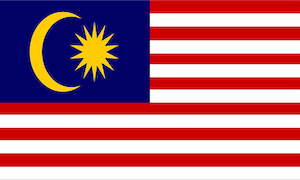
This week, four Malaysian men were punished and struck by canes six times each, because they had violated Islamic law by having same-sex intercourse. The men were also fined and sentenced to 7 months in prison. According to Amnesty International, the religious authorities uncovered the event by “monitoring [their] messages”. The authorities then proceeded to raid the apartment and detain the men. Religious authorities have the power to arrest and detain Muslim citizens, because of the dual-track legal system in Malaysia. Malaysian religious authorities often impose Islamic Law and punish violations against it.

North Korean senior official Kim Kye Gwan announced that North Korea will no longer participate in nuclear talks with the United States until concessions are made. He stated that North Korea “will not give anything for the US president to brag about.” North Korea wants to be acknowledged for their achievements, instead of President Trump crediting them for himself. This message comes after Trump urged North Korea via Twitter to “act quickly” on restarting talks.

The United States Senate has passed a bill that would attempt to preserve human rights in Hong Kong, and passed a second bill that would ban the sale of riot gear to Hong Kong police forces. The contents of the bill, labeled the “Hong Kong Human Rights and Democracy Act” were widely supported in the House and the Senate and will soon be going to President Donald Trump’s office for his approval. Chinese officials slammed the move by Washington, saying that they “condemn and firmly oppose” it due to perceived infringement by the US.
In Hong Kong, this week has seen the continued fight of activists in university campuses. Many demonstrators have taken control of campuses and blockaded entrances, but riot police have managed to gain access to some of these areas and have arrested over 1,000 people. Inside one campus, 3,900 petrol bombs were found. Demonstrations continue.
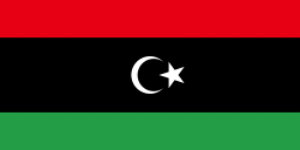
This Monday, the UN Security Council received word by the UN Libya envoy that the attack in Wadi Rabea killing 10 people and wounding 35 may be considered a war crime. Many people killed and injured during this attack were migrants from Niger and Bangladesh. The attack was carried out by the Libyan National Army (LNA) under renegade military commander Khalifa Haftar. The UN Libya envoy also shared that this attack may be considered a war crime regardless of whether the factory was the LNA’s intended target. He blames LNA for increased civilian casualties through their use of unguided bombs. The LNA’s drone attacks have also been disproportionate to that of the Tripoli government; LNA has carried out 800 drone attacks, while the latter has carried out 240.

A week of lethal protests has resulted in at least 106 deaths and over 1,000 arrests, according to Amnesty International. The Iranian government has rejected these claims, stating that the human rights group is “biased”, and “fabricated” the death toll. The protests, originally sparked by growing anger and frustration after authorities rolled out a petrol-rationing scheme that sent prices soaring by 50 percent, have resulted in a four-day internet blackout and a violent crackdown from Iranian forces. The Iranian government has said that the price increase was imperative due to crippling American sanctions that have degraded its oil-based economy, and the purpose was to raise about $2.55 billion a year for subsidies to Iran’s poorest families.

Iraqi protestors have been using humor to fight back against the spread of fake news by military officials. In the latest move by demonstrators, many have taken to Twitter under the hashtag #Tweet_Like_Khalaf to make fun of General Abdul Khalaf for consistently making false claims. In the past, Khalaf has denied the use of live ammunition by security forces and has accused protesters of mooning government forces in aims of provoking them. Tweets under the hashtag depict ridiculous, humorous scenarios in order to point out the absurdity of Khalaf’s claims.

At least 22 civilians have been killed in Idlib’s Internally Displaced Persons camp (IDP) as Russian-backed Syrian forces continue to shell the last stronghold of the Syrian resistance. A ground-to-ground missile struck the camp in the village of Qah on Wednesday according to Ahmed Yarji, a spokesman for Syrian Civil Defense (also known as the White Helmets). Among the victims were 10 children and three women.
This Tuesday, Israeli forces launched retaliatory missiles at Iranian forces located in Damascus, resulting in two known civilian deaths. The strikes followed the interception of four rockets fired from Syria towards northern Israel on Tuesday morning.

This week, a parliament session was postponed after Lebanese protesters convened around the entrance to parliament and formed a human barricade. The announcement to postpone parliament was widely celebrated amongst protesters who argued the session did not properly address the protesters’ demands. Still, security forces were deployed to block the entry of additional protesters intending to join protesters and bolster the human barricade.

Zimbabwean police forces responded violently to civilians who had gathered to listen to a speech by the primary opposition party. Growing discontent in Zimbabwe comes as a result of the worst economic crisis in a decade and the decline of political freedom. Anti-government protests have been banned by the Mnangagwa regime and nonviolent demonstrations have been met with violence. Conditions in the country have continued to decline at an alarming rate and the economic situation continues to spiral.

This month, Havana celebrates its 500th year since its founding in 1519. In recognition of Havana’s anniversary the Spanish crown visited the capitol, marking the country’s first Spanish royal visit. The celebration comes in the wake of worsening economic conditions caused by increased US sanctions. However, these circumstances did not deter Cubans from celebrating their capital. One Cuban shared, “even if we are feeling low, we know we have to pick ourselves up, so it’s good Havana is celebrating its 500 years and there is a party.”

This week, University of Miami professor Bruce Bagley has been arrested on money laundering charges amounting to $2.5 million in proceeds from bribery in Venezuela. For years, Bagley has been a go-to expert for journalists reporting on drug trafficking, money laundering and corruption in South America. According to federal prosecutors, Bagley kept about 10% of the money for himself as a commission. Though specific details were not released about the bribery scheme, Bagley’s corruption was “in connection with public works projects in Venezuela”.

A hunger strike held by seven mothers in a Catholic Church in Nicaragua came to an end after police surrounded the building and pro-government protestors broke in and threatened the demonstrators. The mothers were holding the strike to protest the imprisonment of their children, whom they consider to be political prisoners. The support of anti-government demonstration by the Catholic Church underlines the influence of the church as the last major institution independent from the Ortega regime.
Tensions in Nicaragua have risen since the ousting of Bolivian leader Evo Morales; Ortega has expressed that what happened in Bolivia would not happen in Nicaragua and has begun to crack down on protests of any kind.

Clashes between security forces, Morales supporters and anti-Morales protestors have dominated Bolivia in the past week, following the resignation of longtime president Evo Morales. The death toll has now risen to 32, with casualties primarily on the side of pro-Morales demonstrators. New elections have been proposed by interim leader Jeanine Áñez, though a date has not been set. Bolivian officials have stated that Morales would not be allowed to run in the election, and the interim government has voiced a desire to move on from the former leader’s 14 year rule. Morales, who has been granted asylum in Mexico, accused security forces of using unnecessary violence against protestors, a large number of whom are indigenous people.

The presidents of Russia and Ukraine will meet for the first time in over three years in Paris on December 9th of this year. They will meet to discuss peaceful resolutions to the Eastern Ukraine conflict. Also attending will be the leaders of France and Germany. Elysee Palace has commented on the upcoming conference and shared that “the summit will be held following major progress since the summer in negotiations for a settlement in the East Ukraine conflict, progress which in particular allowed for the removal of troops from several areas of the frontline.”

President Trump has been further implicated in an attempt to persuade Ukrainian officials to investigate his political opponents for the 2020 election. This Wednesday, key witnesses testified before Congress such as Laura Cooper, the deputy assistant secretary of defense for Russia, Ukraine and Eurasia, and David Hale, undersecretary of state for political affairs, testified before the House Intelligence Committee. Their appearance followed testimony from U.S. ambassador to the European Union Gordon Sondland, who implicated President Donald Trump directly in a “quid pro quo” trade with Ukrainian officials. Referencing a White House meeting, Sondland explicitly stated that “everyone was in the loop” about what was going on with the Ukraine foreign policy, including the President and his top officials. Sonland’s testimony along with the testimony from Cooper and Hale have been labeled as “explosive” and “damning”, drastically altering the course of impeachment hearings.
Israel:
This Monday, United States Secretary of State Mike Pompeo stated that the U.S. no longer considers Israeli Settlements in the occupied West Bank to be in violation of international law. The decision marks a stunning reversal of decades of U.S. policy, and a direct contradiction to international consensus. Pompeo’s announcement arrived as Prime Minister Benjamin Netanyahu’s rival Benny Gantz attempted to gather a majority of the Israeli Knesset. Gantz ultimately failed to form a coalition on Wednesday evening, which will likely result in Israel’s third election of 2019.
This week, Israeli authorities rejected a request from Human Rights Watch regional representative Omar Shakir to remain in the country. Shakir is set to be expelled from Israel on November 25th, in accordance with a Supreme Court ruling that implicated him in “promoting boycott strategy”. The expulsion of boycott supporters, Shakir’s request said, “is an earthquake for everything that relates to the ability of human rights organizations and advocates to do their work in Israel and the occupied territories in connection to the Israel-Palestinian conflict.”